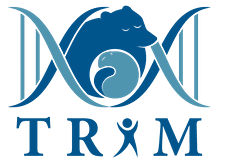Thomas Kilduff, PhD, EAC Chair
Thomas Kilduff, Ph.D., is the Director of the Center for Neuroscience at SRI International (formerly known as the Stanford Research Institute) and currently serves as the Chair for TRiM’s EAC. Dr. Kilduff is an internationally-known neuroscientist for his research on sleep/wake regulation, particularly the discovery of the hypothalamic neuropeptide hypocretin, also known as orexin. Subsequent studies demonstrated that hypocretin neurons degenerate in the sleep disorder narcolepsy, a perspective that revolutionized both our understanding of the neural circuitry underlying sleep/wake control and the neuropathology underlying narcolepsy. Dr. Kilduff received his Ph.D. in Biological Sciences from Stanford University and has had research experience at Stanford University, the Marine Biological Laboratory at Woods Hole, Scripps Research Institute, Pfizer Neuroscience, and SRI International.
Dr. Kilduff’s research focuses on the neurobiology of sleep and wakefulness, sleep disorders, and the biological clock. Government agencies, private foundations, and pharmaceutical companies have supported his research. He has been Principal Investigator on NIH grants from the National Institute of Aging (NIA), National Heart Lung Blood Institute (NHLBI), National Institute of Mental Health (NIMH) and National Institute of Neurological Diseases and Stroke (NINDS). In addition to basic sleep research, his group conducts in vitro and in vivo pharmacology studies related to the development of new medications for the treatment of sleep disorders and he has been awarded Drug Discovery R21 grants by NINDS for the study of novel treatments for narcolepsy. In work with ~40 biotech/pharmaceutical companies, he has established a translational research focus within the Center for Neuroscience with contracts totaling ~$30 million to date.
Dr. Kilduff was named a Fellow of the American Association for the Advancement of Science (2010), an SRI Fellow (2010), a Distinguished Scientist by the Sleep Research Society (2017) and a Fellow of the American College of Neuropsychopharmacology (ACNP; 2019). He has authored/co-authored more than 200 published abstracts, scientific articles, book chapters and mentored over 20 postdoctoral fellows during his professional career.




